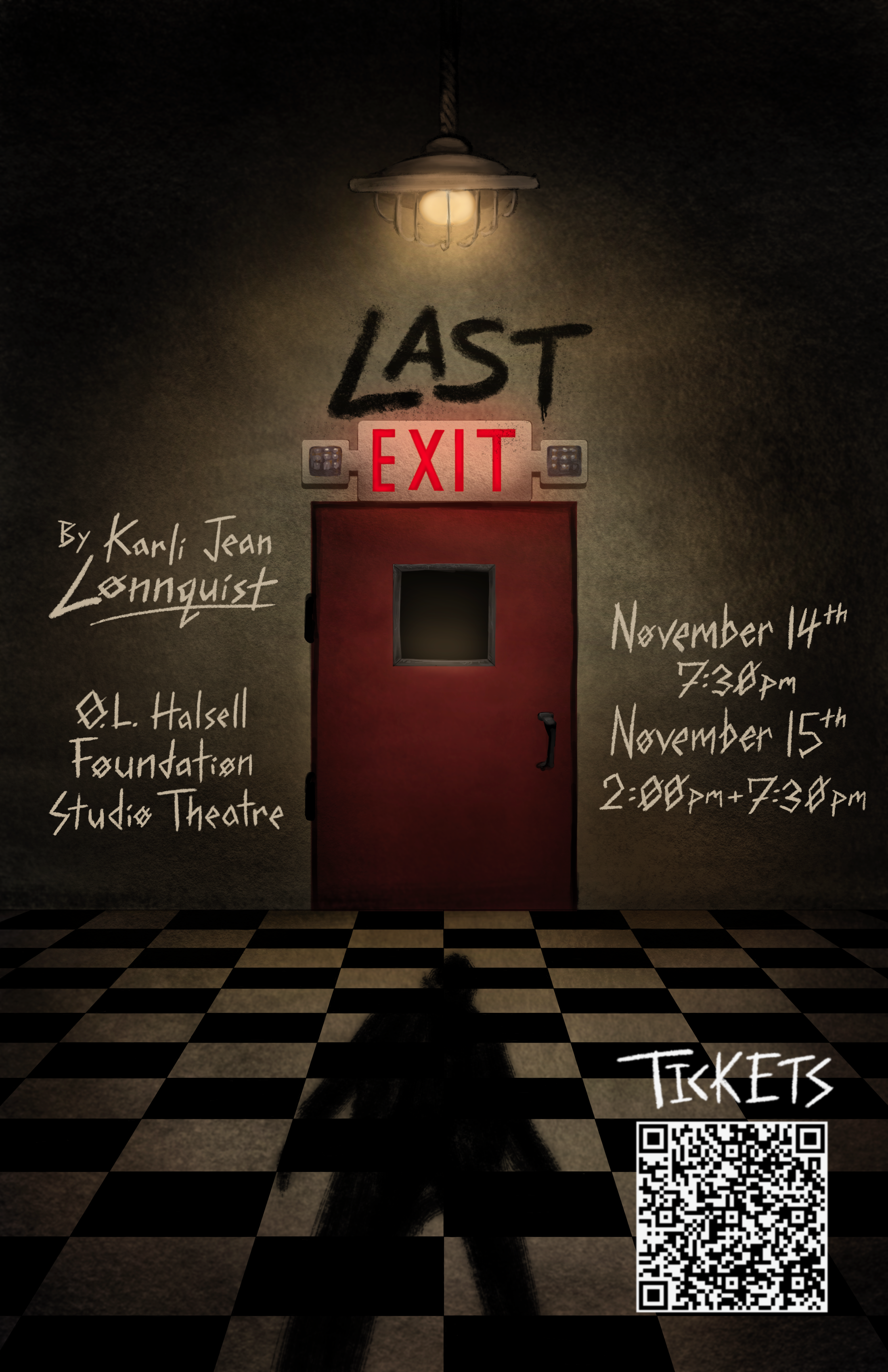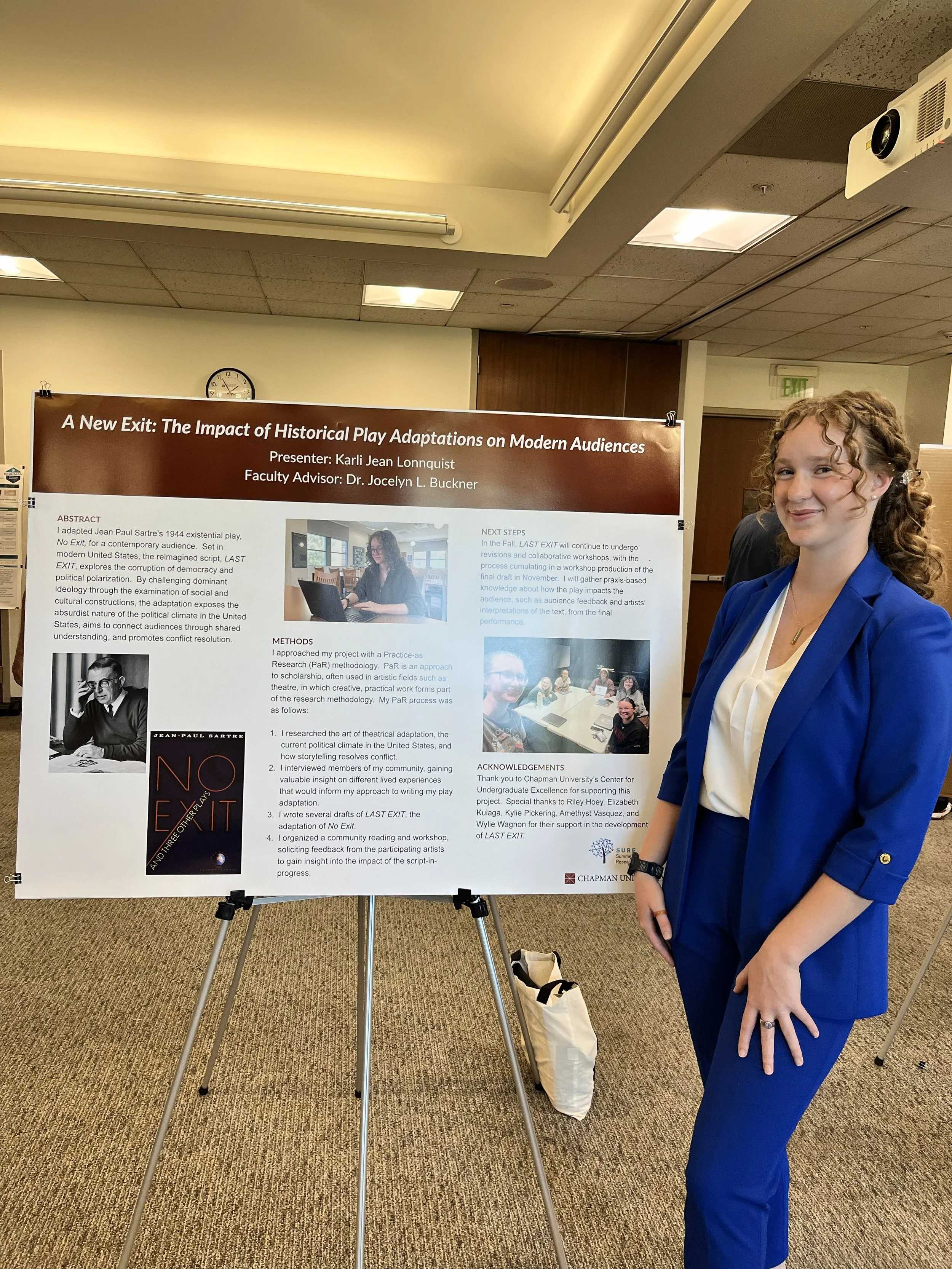Currently in Development:
LAST EXIT
Adapted from No Exit by Jean-Paul Sartre
Chapman University Bachelors of Arts in Theatre Thesis Project
2025 Summer Undergraduate Research Fellowship Recipient
2025 Scholarly/Creative Grant Recipient
Play Synopsis
LAST EXIT, a new play adaptation of Jean-Paul Sartre’s 1944 existential play No Exit, interrogates the impacts of political polarization in the United States, cycles of power, exploitation, and survival, and corruption of modern democracy. Set in a post-apocalyptic modern A.M.E.R.I.C.A (Authoritarian Mechanism for Enforcement, Regulation, Indoctrination, Control, and Assimilation), Big Mac, Fry, and Nugget find themselves trapped inside a McDonalds whilst fleeing the country for Mexico. As the characters debate cyber trucks, the American Dream whether or not meals are really “happy”, who deserves to be served first, and finally, their options for escape, three stories of what it means to live in contemporary America unfold in real time. Can they come together to find a way out? Or will they remain locked inside for good?
2025 Workshop Production
LAST EXIT was originally developed and produced as a stage reading at Chapman University Department of Theatre, November 2025. The performance was directed by Karli Jean Lonnquist. Production dramaturgy was by Jasmine Flanders, sound design was by Henry Findtner and lighting design was by Keenan Dyrby. The production stage Manager was Charlotte Burchetta. The cast was as follows:
Ronny…………………………………………………………Wylie Wagnon
Big Mac……………………………………………………..Liam Berkovich
Fry…………………………………………………………………Ariel Elise
Nugget……………………………………………………….Victoria Salazar
Stage Directions…………………………………..Izzy Rampersad
The LAST EXIT cast with Karli, from left to right; Ariel Elise, Wylie Wagnon, Karli Jean Lonnquist, Liam Berkovich, Victoria Salazar, and Izzy Rampersad.
The LAST EXIT creative team, from left to right; Charlotte Burchetta, Henry Findtner, Karli Jean Lonnquist, and Keenan Dyrby.
LAST EXIT on Video…
View the professional recording of LAST EXIT in the O.L. Halsell Foundation Studio Theatre, created with support from the Chapman University Scholarly Creative Grant. Shot by Sasha Anufrieva Videoart, the recording includes the full 65-minute performance and a talkback with the audience immediately following the show.
Content Advisory: please note that the performance of LAST EXIT contains strong language, sexual content, references to sexual assault, depictions of systemic violence, verbal harassment, mentions of death, sudden loud noises (such as fireworks or explosions), and flashing lights. Viewer discretion is advised.

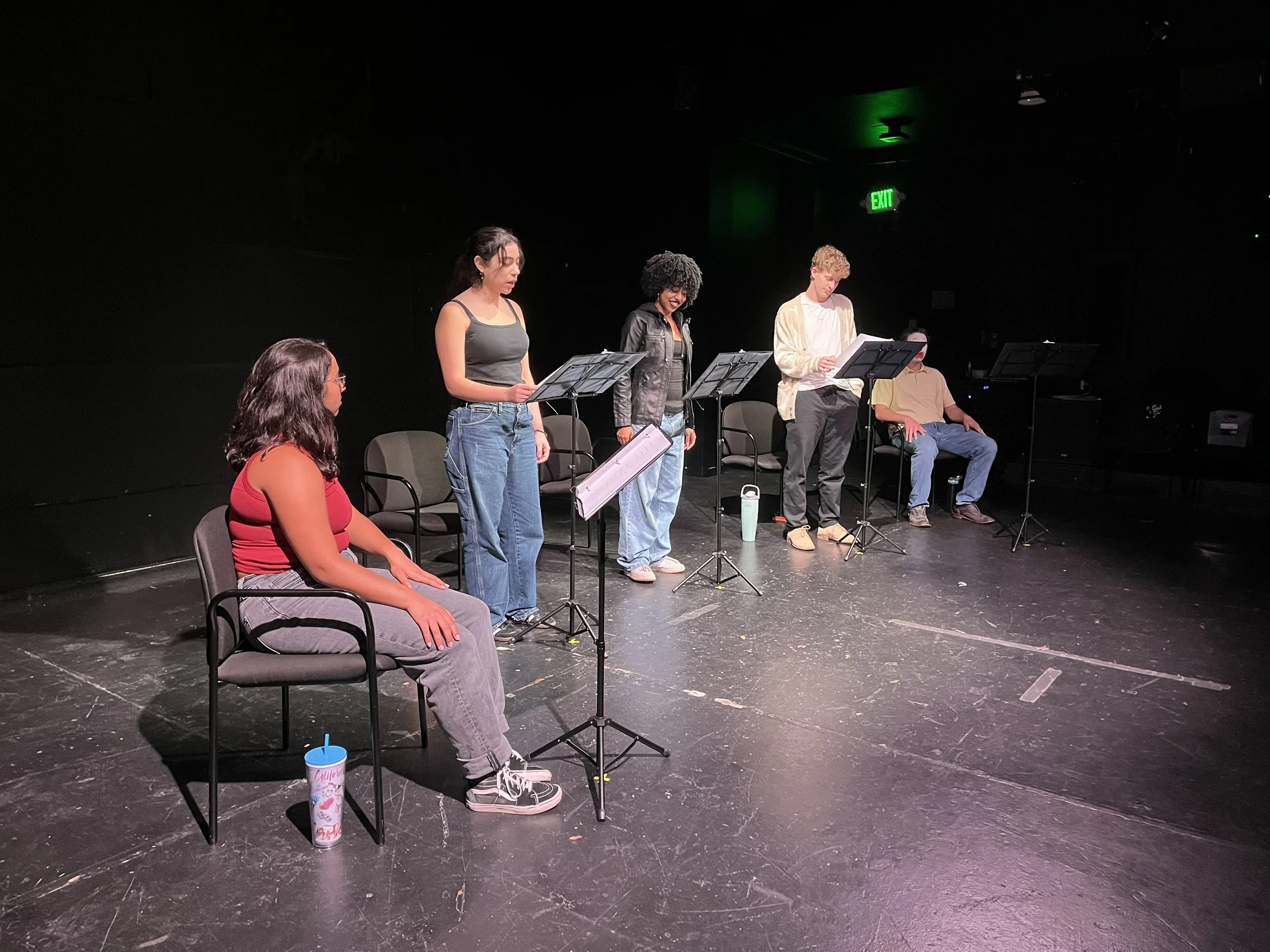

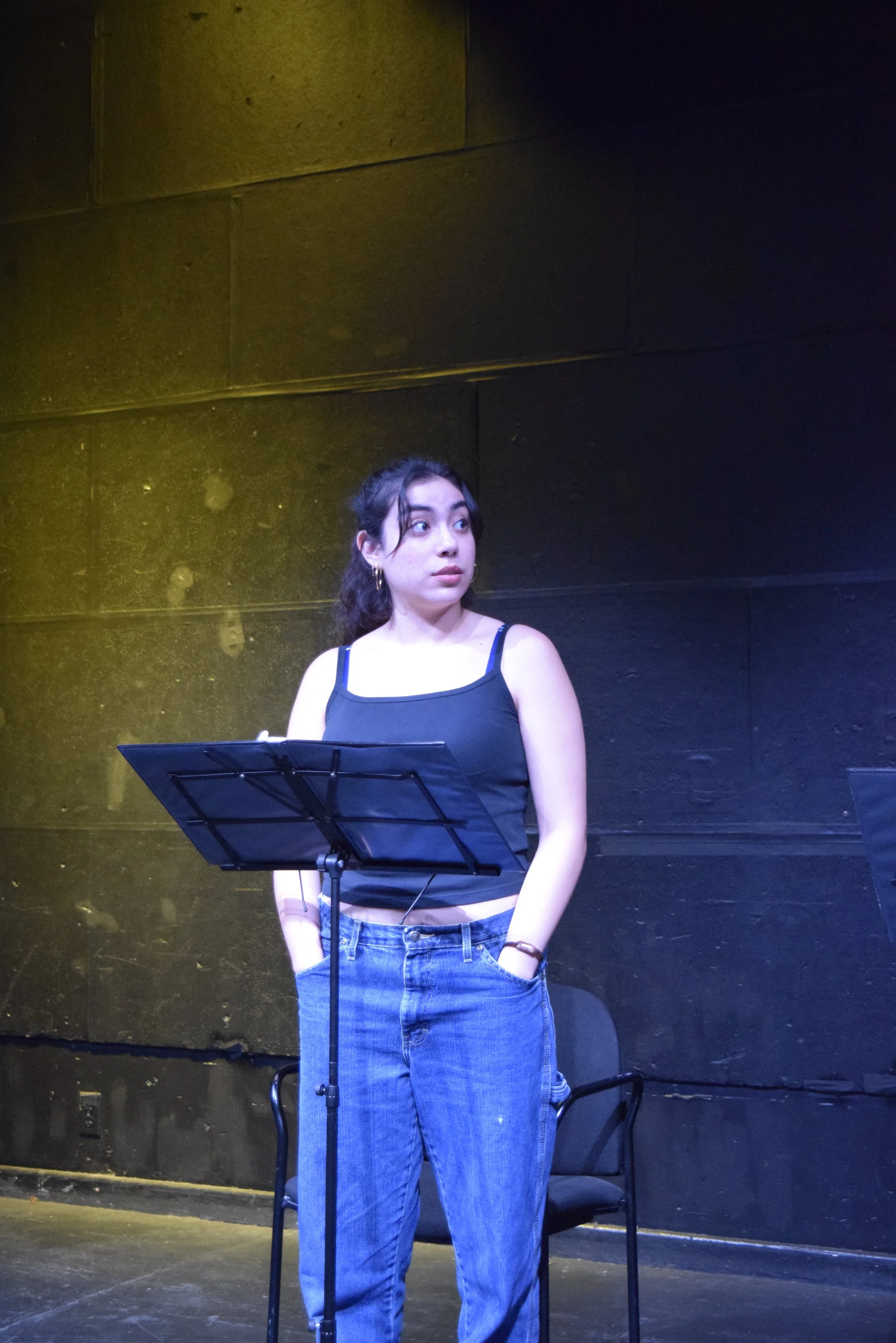


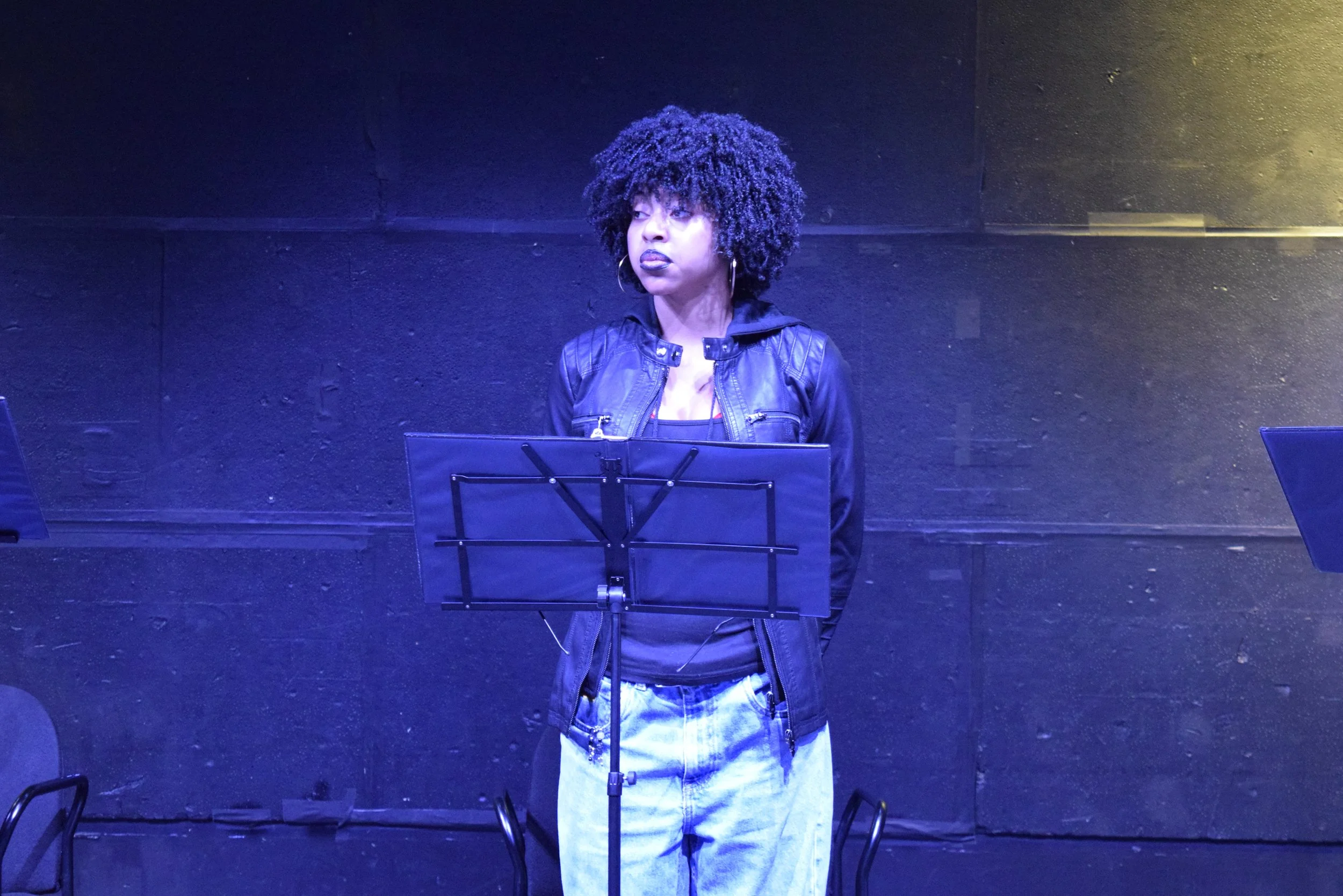
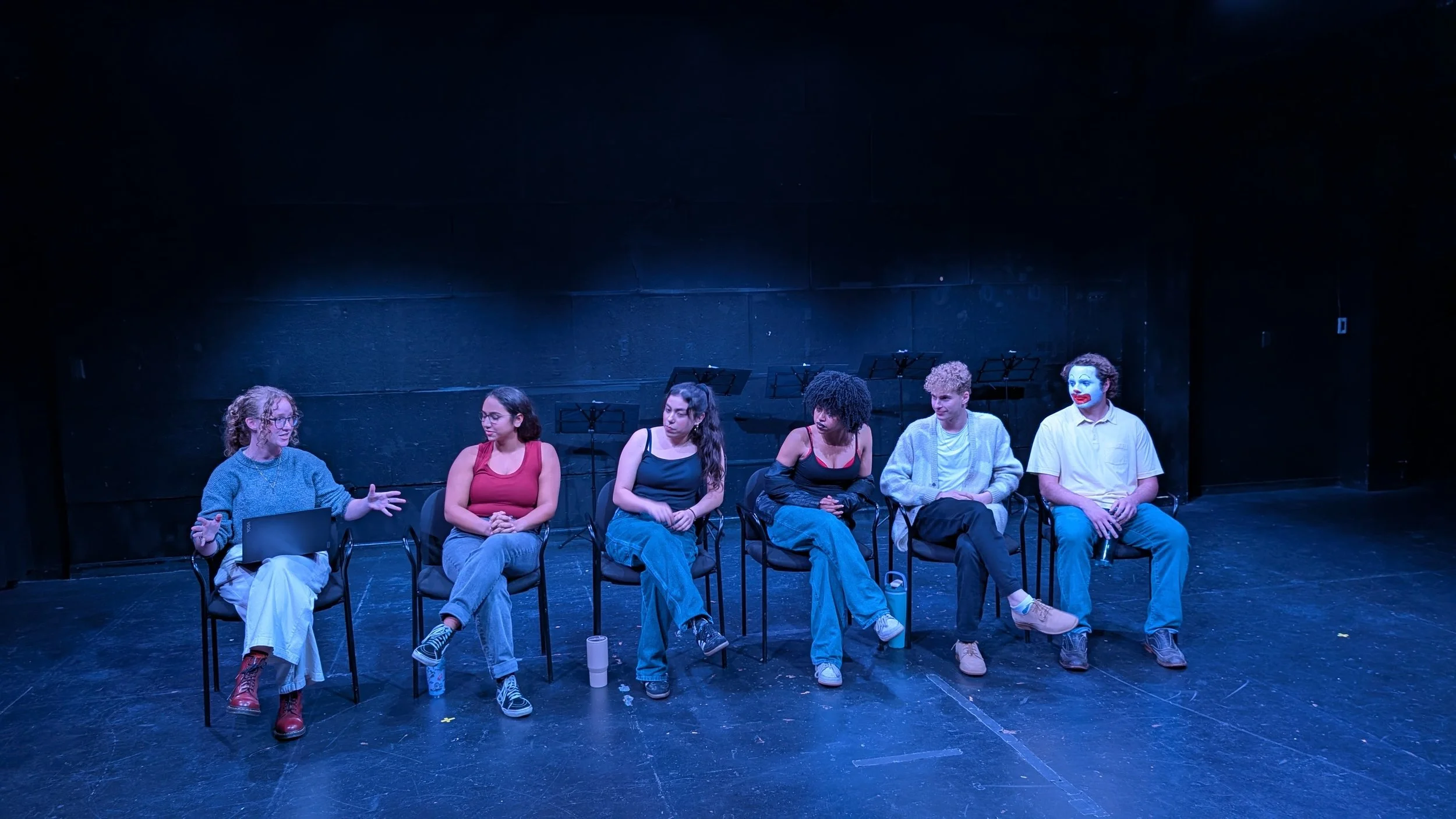


Karli presenting her research with LAST EXIT at Chapman’s Summer Research Showcase
Karli and advisor, Dr. Jocelyn L. Buckner, at Chapman’s Summer Research Showcase
Rewriting Hell: Adaptation, Hope, and the ‘American Dream’ in Practice-as-Research
Contemporary theatrical adaptation involves deconstructing, reimagining, and rewriting historical plays for modern audiences. Adaptation appropriates theatrical conventions, changes the lens through which the audience may view the play, and offers new entry points into thinking and practice. Adaptation asks, “why this source as theatre now?” and proposes that history provides tools for engagement with contemporary issues. By employing a Practice as Research methodology, which positions creative processes such as script development, rehearsal, or play development as research methods, I investigated the art of historical adaptation. I adapted No Exit, a 1944 existentialist play by Jean-Paul Sartre, into a new play called LAST EXIT. I developed my script through collaborative workshops, staged a formal reading of the final draft, and gathered praxis-based knowledge, including audience feedback and artists’ interpretations of the text, throughout the process. My project explores the following question: how can historical plays help modern audiences respond constructively to current conflicts?
Written during the occupation of Paris in World War II, No Exit was a subversive display of anti-fascist resistance; a statement of hope despite the terrifying circumstances in which the characters find themselves. My adaptation, set in the present-day United States, examines the corruption of democracy, political polarization, and the performance of identity during crisis. As changes reshape the nation’s political, social, and cultural landscape, our collective “ending” feels increasingly uncertain. Yet, Sartre’s message resonates: if you are unhappy with your situation you have only one thing to do…take action. Contemporary adaptations, motivated by the belief that creative production and cultural participation can fortify the best parts of our humanity, allow us to build compassionate, people-centered communities.
